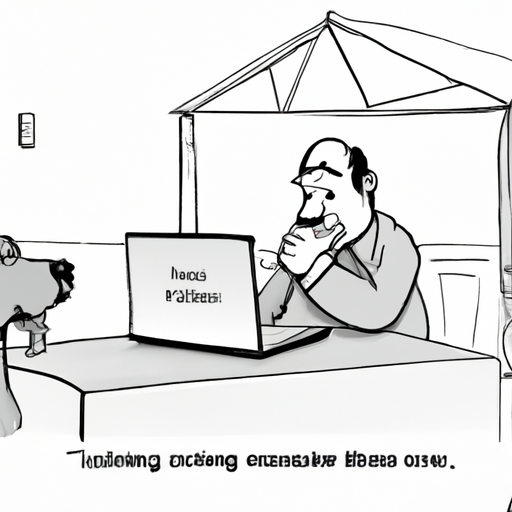Kennel cough, also known as infectious tracheobronchitis, is a highly contagious respiratory disease among dogs. Much like the common cold in humans, it can be contracted from various sources and can strike when you least expect it. Let’s delve into the details of how your furry friend can get kennel cough.
1. Exposure to Infected Dogs
Just like you’d catch a cold from your sniffling coworker, your dog can get kennel cough from another coughing dog. This is often why kennel cough spreads quickly in crowded places like dog parks, grooming salons, or kennels.
- Direct Contact: When an infected dog coughs or sneezes, the bacteria or virus can be directly transmitted to your dog if they’re close enough.
- Indirect Contact: Your dog can also contract the disease from objects that an infected dog has touched, such as toys or water bowls.
2. Stress and Poor Ventilation
Your dog’s environment plays a significant role in their health, as it would yours. Places with poor ventilation can increase the chances of kennel cough, and stress can lower your dog’s immune response, making them more susceptible.
- Poor Ventilation: Kennel cough can thrive in poorly ventilated areas, especially if there are many dogs around.
- Stress-induced Immunosuppression: Stressful situations like moving to a new home, or even a trip to the vet, can weaken your dog’s immune system and make them more vulnerable.
3. Lack of Vaccination
Vaccination is to your dog what an umbrella is to you on a rainy day – a shield. Without it, they’re more susceptible to diseases like kennel cough.
- Bordetella Vaccine: This helps protect against the Bordetella bronchiseptica bacteria, one of the common causes of kennel cough.
- Canine Parainfluenza Vaccine: This helps protect against the canine parainfluenza virus, another common cause of kennel cough.
| Vaccination | Protection Against |
|---|---|
| Bordetella Vaccine | Bordetella bronchiseptica bacteria |
| Canine Parainfluenza Vaccine | Canine parainfluenza virus |
4. Age and Health Status
Just as babies and elderly people are more prone to catch a cold, puppies and older dogs are more susceptible to kennel cough. Similarly, dogs with a compromised immune system are also at risk.
- Puppies and Older Dogs: Their immune systems aren’t as robust, making them more susceptible.
- Dogs with a Compromised Immune System: If your dog has another health condition, it could lower their immune response, making them more prone to contracting kennel cough.
5. The Role of Weather
Believe it or not, the weather can play a part in your dog catching kennel cough, just as it can with humans catching a cold.
- Cold Weather: Cold, damp weather can increase the likelihood of kennel cough.
- Dusty Conditions: Dust can irritate your dog’s respiratory tract and make them more susceptible to kennel cough.
Frequently Asked Questions
1. Can my dog get kennel cough even if they are not in a kennel?
Yes, your dog can contract kennel cough from various places like dog parks, grooming salons, or even on a walk.
2. Can I prevent my dog from getting kennel cough?
While it’s not entirely preventable, you can reduce the risk by keeping their vaccinations up-to-date, maintaining a clean and stress-free environment, and avoiding crowded places during an outbreak.
3. Is kennel cough life-threatening?
In most cases, kennel cough is not life-threatening and can be treated with rest and proper care. However, severe cases, especially in puppies or immunocompromised dogs, may require veterinary attention.
4. Can humans catch kennel cough from dogs?
It’s very rare, but possible. The Bordetella bronchiseptica strain of kennel cough can infect humans with weakened immune systems.
5. How long does kennel cough last?
It usually lasts between 10-20 days, but symptoms can start showing up 2-14 days after exposure.



